
Timing & Time Perception
Scope & Guideline
Unraveling the Mysteries of Timing in Psychology
Introduction
Aims and Scopes
- Interdisciplinary Exploration of Time:
The journal emphasizes the integration of perspectives from neuroscience, psychology, physics, and philosophy to create a comprehensive understanding of time perception. - Cognitive and Psychological Aspects of Time:
Research focuses on how humans perceive, estimate, and experience time, including the cognitive mechanisms underlying temporal judgments. - Neuroscience of Time Perception:
The journal publishes studies investigating the neural correlates of time perception, including how timing is represented in the brain and its implications for behavior and cognition. - Temporal Dynamics in Various Contexts:
Topics include how time perception varies across different contexts, such as during emotional experiences, age-related changes, and situational factors. - Theoretical Contributions on Time:
Contributions that propose new theories or challenge existing paradigms regarding the nature and perception of time are a key focus.
Trending and Emerging
- Integration of Neuroscience and Psychology:
There is a growing trend towards combining neuroscience with psychological concepts to explore how temporal perception is influenced by neural mechanisms and cognitive processes. - Impact of Socio-Economic Factors on Time Perception:
Research increasingly examines how socio-economic conditions, such as those highlighted during the COVID-19 pandemic, affect individuals' perceptions of time and well-being. - Temporal Dynamics in Virtual Environments:
Studies focusing on time perception in virtual reality settings are emerging, reflecting advancements in technology and their implications for understanding cognitive processes. - Temporal Perspective and Personal Well-Being:
An increasing number of articles are exploring the relationship between time perspective and psychological well-being, emphasizing the importance of how individuals perceive their past, present, and future. - Causation and Time Perception:
A new focus on the role of causation in temporal judgments indicates a deeper investigation into how people relate events over time and how this affects their perception of time.
Declining or Waning
- Traditional Temporal Measurement Techniques:
There has been a noticeable decline in studies focusing on classical methods of measuring time perception, suggesting a movement towards more innovative and interdisciplinary approaches. - Basic Temporal Illusions:
Research on simple temporal illusions has waned, indicating a shift towards more complex phenomena involving cognitive and emotional factors in time perception. - Age-Related Time Perception Studies:
Although age-related differences in time perception were once a significant focus, recent publications have shown a decreased emphasis on this area, possibly due to the growing interest in broader psychological and contextual influences. - Cultural Studies of Time Perception:
Investigations into how time perception varies across different cultures have become less frequent, as the journal's emphasis shifts towards more universal cognitive and biological aspects. - Static Models of Time Perception:
There is a decline in the publication of static models that do not account for the dynamic nature of time perception influenced by various factors such as attention or emotional states.
Similar Journals

PALEONTOLOGICAL JOURNAL
Where Paleontology Meets Innovation.The PALEONTOLOGICAL JOURNAL, published by PLEIADES PUBLISHING INC, is a premier platform for the dissemination of research in the field of paleontology. With an ISSN of 0031-0301 and E-ISSN 1555-6174, this journal serves the academic community by providing insights into fossil studies, evolutionary biology, and the historical narrative of life on Earth. Despite being categorized in the Q3 quartile for 2023 and currently holding a Scopus rank of #84 out of 113 in the Earth and Planetary Sciences- Paleontology category, it remains a valuable resource for researchers and practitioners. The journal's coverage spans from 1990 to 2024, offering a comprehensive historical perspective while also addressing contemporary issues in paleological research. Scholars and students alike benefit from its rigorous peer-reviewed articles and the opportunity to access vital knowledge in the ever-evolving field of paleontology.
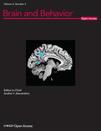
Brain and Behavior
Fostering Interdisciplinary Research in Behavioral Science.Brain and Behavior is a premier open-access journal published by WILEY, dedicated to advancing the field of Behavioral Neuroscience. With its ISSN 2162-3279, the journal has established itself as a vital resource for researchers, professionals, and students alike, fostering the dissemination of cutting-edge research since its inception in 2011. Renowned for its rigorous peer-review process, it enjoys a commendable Q2 ranking within the field, reflecting its impactful contributions and relevance in the scientific community. The journal not only emphasizes innovative studies that bridge behavioral science and neuroscience but also serves as a platform for diverse methodologies and interdisciplinary approaches. Accessible [open access](https://onlinelibrary.wiley.com/journal/21623279), Brain and Behavior invites submissions that explore the neural mechanisms underlying behavior, aiming to engage a global audience eager to expand the boundaries of knowledge in this dynamic field. Positioned in the heart of the United States, at 111 River St, Hoboken, NJ, it is strategically placed to collaborate with leading institutions and researchers worldwide.
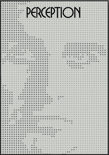
PERCEPTION
Exploring the Depths of Human PerceptionPERCEPTION is a leading journal published by SAGE PUBLICATIONS LTD, focusing on the multidisciplinary aspects of perception across various fields, including Artificial Intelligence, Experimental and Cognitive Psychology, Ophthalmology, and Sensory Systems. With a commitment to advancing knowledge and fostering innovative research, the journal has been in circulation since 1972 and is recognized for its rigorous peer-review process and significant contributions to the academic community. Its current impact factor and Scopus rankings position it within the esteemed Q2 and Q3 categories, making it a valuable resource for researchers and professionals aiming to explore the complexities of human perception and its computational models. Although PERCEPTION does not offer open access, it provides essential insights and findings that are particularly relevant for students and academics in psychology, neuroscience, and artificial intelligence. Addressing cutting-edge topics, this journal serves as a vital forum for the exchange of research ideas and methodologies in the evolving landscape of perception studies, making it a crucial asset for anyone dedicated to understanding this intricate field.
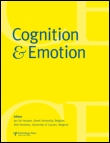
COGNITION & EMOTION
Unraveling the Complex Tapestry of Cognition and EmotionCOGNITION & EMOTION is a leading academic journal published by Routledge Journals, Taylor & Francis Ltd, focusing on the dynamic interactions between cognitive processes and emotional responses. Established in 1987, this esteemed journal has made significant contributions to the fields of Arts and Humanities, Developmental and Educational Psychology, and Experimental and Cognitive Psychology, consistently ranking in the top quartile (Q1) across various categories. Housed in the United Kingdom, COGNITION & EMOTION boasts a remarkable impact factor, underscoring its influence and importance in advancing psychological research and theory. While this journal does not offer open access, it remains a vital resource for scholars, professionals, and students seeking to deepen their understanding of emotional and cognitive phenomena. With a commitment to rigorous peer-reviewed research and innovative insights, COGNITION & EMOTION is essential for anyone aiming to stay at the forefront of psychological studies.

COGNITIVE NEUROPSYCHOLOGY
Illuminating the Pathways of the Mind and BrainCOGNITIVE NEUROPSYCHOLOGY, published by ROUTLEDGE JOURNALS, TAYLOR & FRANCIS LTD, is a premier academic journal that has established itself as a vital resource in the fields of cognitive neuroscience, neuropsychology, and psychology since its inception in 1984. With an esteemed impact factor that reflects its significance within the academic community, this journal is classified in the Q1 category for Arts and Humanities (miscellaneous) and Q2 in various other fields, including Cognitive Neuroscience and Developmental Psychology, based on the latest evaluation of 2023. COGNITIVE NEUROPSYCHOLOGY provides a platform for the dissemination of innovative research findings and theoretical advancements that deepen our understanding of cognitive processes and behavior in relation to neural systems. The journal also boasts a robust Scopus ranking, ensuring that articles published are of the highest caliber. Though it follows a traditional publishing model, the journal's commitment to rigorous peer review guarantees that it remains an authoritative voice for researchers, professionals, and students devoted to advancing knowledge in these critical areas of study.

COGNITIVE AFFECTIVE & BEHAVIORAL NEUROSCIENCE
Illuminating Connections: Understanding the Neuroscience of Mind and ActionCOGNITIVE AFFECTIVE & BEHAVIORAL NEUROSCIENCE (ISSN: 1530-7026, E-ISSN: 1531-135X) is an esteemed journal published by SPRINGER that aims to advance the understanding of the interplay between cognitive processes, affective states, and behavioral responses in the field of neuroscience. Established in 2001, the journal provides a rigorous platform for disseminating high-quality research, with a significant focus on both Behavioral Neuroscience and Cognitive Neuroscience. Classified in Q1 and Q2 quartiles for 2023, it ranks highly within its categories, holding positions of #37 out of 88 and #46 out of 115 respectively in the Scopus listings. Although not an open-access publication, readers can access a wealth of valuable insights and innovative findings that enrich the scientific community's understanding of brain function and behavior. The journal's emphasis on interdisciplinary research contributes to its esteemed reputation, making it a vital resource for students, researchers, and professionals striving to explore the complex nature of the human mind and behavior.
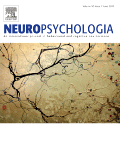
Neuropsychologia
Exploring the Mind: Bridging Psychology and NeuroscienceNeuropsychologia, published by PERGAMON-ELSEVIER SCIENCE LTD, is a premier journal that delves into the intersections of psychology and neuroscience, specifically focusing on behavioral and cognitive processes. Since its inception in 1963, this esteemed journal has been a vital platform for researchers, professionals, and students, showcasing innovative studies and advancements in the fields of Behavioral Neuroscience, Cognitive Neuroscience, and Experimental Psychology. With a commendable impact factor, placing it in the Q2 category across multiple disciplines, Neuropsychologia is recognized for its contribution to the scientific community, ranking among the top journals in both Experimental and Cognitive Psychology and Neuroscience. The journal's commitment to excellence is evident in its rigorous peer-review process and its mission to disseminate cutting-edge research, making it an invaluable resource for those seeking to expand their knowledge and insights in neuropsychology. For further reading, the journal is accessible in both print and digital formats, ensuring that researchers can easily engage with the latest findings and theoretical advancements in this dynamic field.
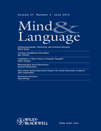
MIND & LANGUAGE
Innovating Understanding in Linguistics and PhilosophyMIND & LANGUAGE, published by WILEY, is a premier academic journal that has established itself as a leading platform for interdisciplinary research at the intersection of linguistics, philosophy, and cognitive science. With a noteworthy impact factor and a remarkable ranking in the top quartiles (Q1) for both Linguistics and Language as well as Philosophy, it reflects the journal’s robust contribution to the academic community, garnering attention from researchers and scholars worldwide. Since its inception in 1986, MIND & LANGUAGE has provided an avenue for exploring the complexities of language perception, cognitive processes, and the philosophical implications of linguistic studies. Its comprehensive scope ensures that it remains a critical resource for professionals and students alike who are engaged in the exploration of language's role in human thought and society. The journal's rigorous peer-review process guarantees the high quality and scholarly integrity of the published work, making it an essential addition to any academic library.

PSYCHOLOGIA
Cultivating a Deeper Understanding of the MindPSYCHOLOGIA is a distinguished academic journal published by the Psychologia Editorial Office, focusing on the broad field of psychology. Originating from Japan, the journal serves as a platform for innovative research and insights into various psychological phenomena, contributing significantly to the advancement of psychological knowledge since its establishment in 1996. With an ISSN of 0033-2852 and an E-ISSN of 1347-5916, PSYCHOLOGIA primarily targets researchers, professionals, and students who are passionate about the intricacies of human behavior and cognition. Currently categorized in the Q4 quartile of psychology (miscellaneous) based on 2023 metrics, it holds a Scopus rank of #157 out of 216, indicating its developing presence within the academic community. Despite being published without open access options, the journal remains committed to fostering scholarly dialogue and disseminating significant findings that shape contemporary psychological research. As it converges towards its issue set for 2024, PSYCHOLOGIA continues to be an essential resource for those seeking to deepen their understanding of psychological sciences.

Art & Perception
Transforming Perspectives on Art and Human ExperienceArt & Perception, published by BRILL, stands as a pivotal journal in the exploration of visual arts and the psychology of perception. With a robust ISSN of 2213-4905 and E-ISSN of 2213-4913, this journal has established itself as an indispensable resource for researchers, professionals, and students in the fields of Applied Psychology, History, and Visual Arts. As of 2023, it enjoys impressive rankings in its categories, with a Q3 status in Applied Psychology and a Q1 status in both History and Visual Arts, reflecting its scholarly impact. The journal operates from its base in Leiden, Netherlands, and spans an impressive coverage from 2013 to 2024. While it does not currently offer open access, its commitment to disseminating valuable research makes it an essential read for those seeking to deepen their understanding of art perception and its psychological underpinnings. With a Scopus rank of #39 out of 667 in Arts and Humanities, and a remarkable 94th percentile, Art & Perception continues to shape discourse and innovation at the intersection of art and psychology.